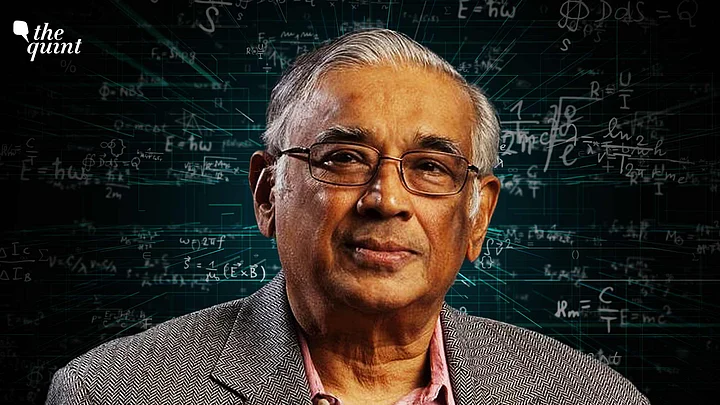Indian American mathematician SR Srinivasa Varadhan, considered to be one of the most influential mathematicians in the world, has been awarded the Padma Vibhushan, India's second highest civilian honour.
Known globally for his contributions to probability theory, 83-year-old Varadhan, who was born in Chennai (then Madras), is one of the six people awarded the Padma Vibhushan for "exceptional and distinguished service," the government announced on Thursday, 26 January.
The honour comes 15 years after Varadhan was given the Padma Bhushan, which is the country's third highest civilian honour. He is also the recipient of the highly prestigious Abel Prize, which he won in 2007 for his contributions to probability theory and more specifically for creating a unified theory of large deviations.
Meanwhile, Indian Canadian mathematician Sujatha Ramdorai was awarded the Padma Shri, India's fourth highest civilian honour, making her one of 91 recipients for the award this year.
Who Is SR Srinivasa Varadhan?
Varadhan, also known as 'Raghu' to his friends and colleagues, was born in in Chennai in 1940. The importance of education was enshrined to him by his parents themselves. "Education always got high priority in our house and I received constant encouragement from both my parents," he had said while accepting the Abel Prize.
His foray into the world of mathematics took place in high school. Explaining what attracted him to the subject at a young age, he said in an interview:
"At high school I had an excellent mathematics teacher who asked some of his better students to come to his house during weekends, Saturday or Sunday, and gave them extra problems to work on. We thought of these problems just as intellectual games that we played, it was not like an exam; it was more for enjoyment. That gave me the idea that mathematics is something that you can enjoy doing like playing chess or solving puzzles. That attitude made mathematics a much more friendly subject, not something to be afraid of, and that played a role in why I got interested in mathematics."
After graduating with a bachelor's and master's degree in Statistics from the University of Madras, Varadhan earned a doctorate from the Indian Statistical Institute in Kolkata and then went on to become a postdoctoral fellow at the Courant Institute in New York.
He then became an assistant professor in 1966, an associate professor in 1968, and a professor in 1972. He was also appointed the Director of Courant from 1980-84 and again from 1992-94.
Currently, he is working as a mathematics professor and Frank J Gould Professor of Science at the Courant Institute of Mathematical Sciences of New York University.
Apart from the Padma Vibhushan and the Abel Prize, Varadhan has been the recipient of a large number of prestigious awards. Some of them include:
Birkhoff Prize (1994)
Margaret and Herman Sokol Award of the Faculty of Arts and Sciences, New York University (1995)
Leroy Steele Prize (1996)
He was also elected as a Fellow of the Institute of Mathematical Statistics in 1991, the Royal Society in 1998, the Indian Academy of Sciences in 2004, the Society for Industrial and Applied Mathematics in 2009, and the American Mathematical Society 2012.
Speaking about the kind of person and mathematician Varadhan is, his colleague and long-time associate Daniel Stroock said in a 1997 article:
"I am not going to claim that Varadhan does not enjoy his success; he does. Nor am I about to say that he is some sort of saint; we could never have become friends if he were. Nonetheless, what distinguishes Varadhan from nearly all the other gifted people whom I have met is the remarkable command he exercises over his own gift. In particular, he has learned how to prevent his unusual intellectual powers from poisoning his relations with lesser intellects. For example, Varadhan can tolerate being wrong, at least occasionally. In addition, he is not one of the many mathematical princes who espouse the notion that all their obligations to humanity can be met through their contributions to mathematical research."
To read the complete list of Padma awardees this year, click here.
(With inputs from MacTutor History of Mathematics Archive.)
(At The Quint, we question everything. Play an active role in shaping our journalism by becoming a member today.)
